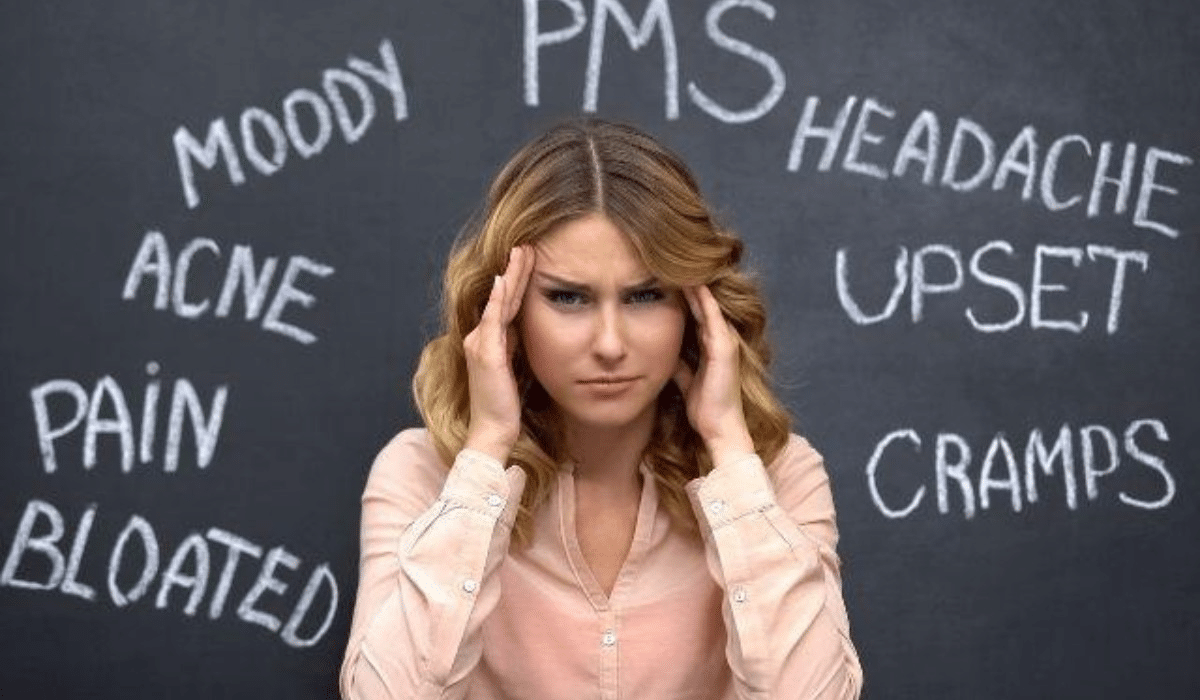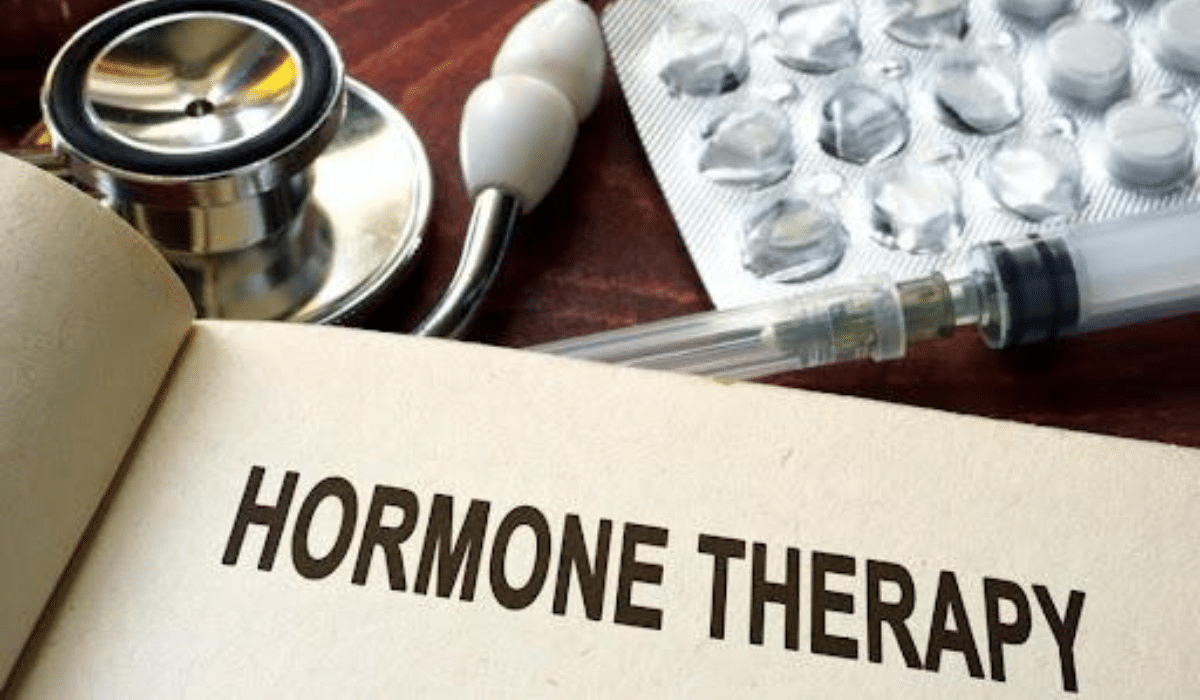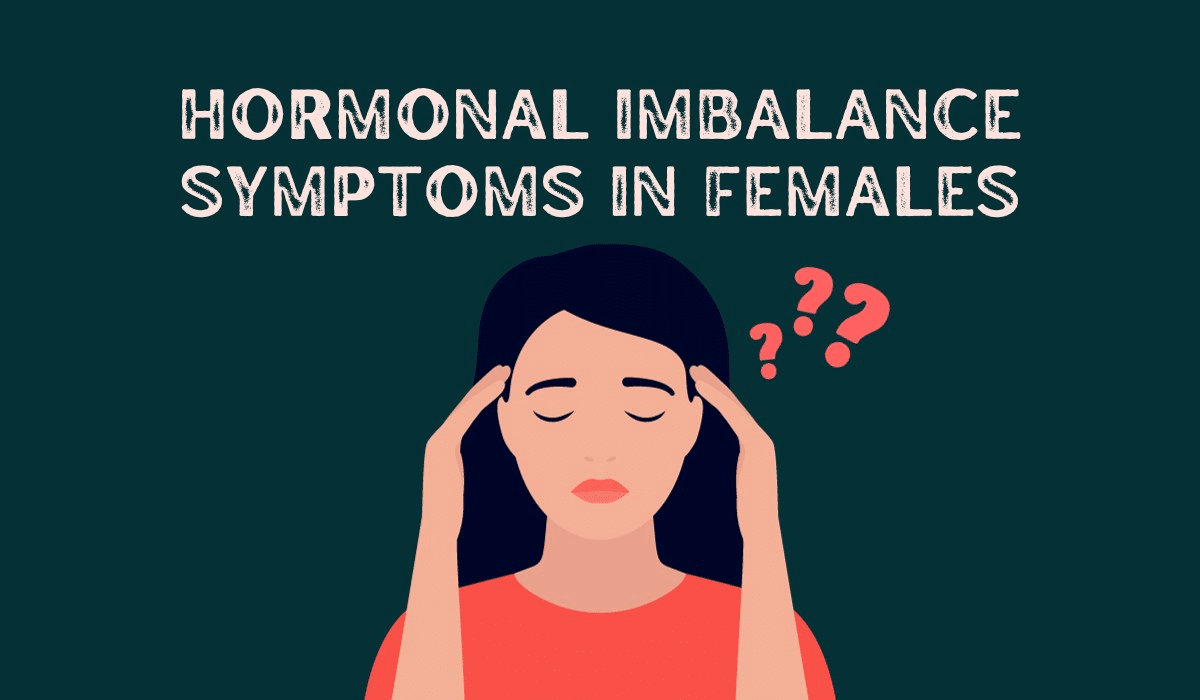The body’s chemical messengers, hormones, control a complex symphony of physiological functions in the body. Finding balance in one’s hormonal health and obtaining the right therapy begins with understanding these symptoms. Continue reading to get to know hormonal imbalance symptoms in females.
The overall well-being of a woman can be greatly impacted by hormonal abnormalities. To properly manage these concerns, it is imperative to identify the signs. Hormonal imbalance symptoms can take many different forms in females. It’s usual to feel fatigue, mood fluctuations, irregular periods, and weight gain or loss.
In addition, problems with infertility worsened PMS symptoms, and low libido may affect women. If you think you may have an imbalance in your hormones, it’s crucial to see a doctor. You can improve your quality of life by getting the right treatment and restoring hormonal balance. To achieve balance and vigor, stay informed and give your health a top priority.
This guide will go over the typical symptoms of hormone imbalance that affect women and how they can affect their daily lives. Additionally, we will examine the underlying reasons and potential remedies to support women in regaining hormonal balance and leading better,
Table of Contents
Hormonal imbalance in females
Hormones, as it happens, function in our bodies as little messengers. They regulate many aspects of our lives, including our emotions, our body’s functions, and the timing of our periods. However, these messengers can occasionally become confused. We experience a hormonal imbalance at that point. It may give us a strange feeling. If your body were a car, the hormones would be the fuel. The car runs poorly when the gasoline level is either too high or too low.
The truth is that this imbalance can cause mood swings, skin issues, irregular menstruation, and more. It’s similar to a conundrum, and we must determine its cause. Sometimes it’s bad eating or stress. In other cases, a medical condition can be the culprit. The good news is that it can be fixed. To balance those hormones, you might need to alter your diet, take medication, or even make certain lifestyle modifications.
The important thing is to be aware of your body, to recognize when something is wrong, and to consult a physician. You can feel your best and get back on track with their assistance. Therefore, if you’re experiencing a hormone imbalance, don’t worry, it’s a frequent occurrence, and there are ways to help you feel fantastic again!
What are the hormonal imbalance symptoms in females?

The following are some typical signs of female hormone imbalances:
- Menstrual irregularities: Modifications to the menstrual cycle, such as severe bleeding during the menstrual cycle, missed periods, or irregular periods.
- Mood swings: A range of emotional symptoms that may include depression, anxiety, impatience, or mood swings.
- Weight changes: Loss or rise in weight without apparent cause.
- Fatigue: Extended periods of exhaustion, poor energy, and trouble focusing.
- Skin problems: Symptoms associated with the skin, such as hirsutism, acne, greasy or dry skin, or excessive hair growth.
- Hot flashes: Often linked to menopause, these are sudden, strong sensations of warmth and sweating.
- Sleep disorders: Restless nights, trouble falling asleep, or irregular sleep schedules.
- Alterations in hair: Hair loss or scalp thinning.
- Breast tenderness: Breast enlargement and sensitivity.
- Vaginal dryness: Menopause-related hormonal changes may be the cause of dryness, irritation, or discomfort in the vaginal region.
- Modifications in libido: A reduction in libido or other modifications to sexual function.
- Headaches: Migraines or headaches may be brought on by hormonal changes.
- Digestive problems: Symptoms related to the digestive system, such as diarrhea, constipation, or bloating.
- Cognitive changes: Inability to focus, forgetfulness, or issues with remembering.
- Bone health: Osteoporosis, or the weakening of bones as a result of low estrogen levels, particularly after menopause.
- Breast changes: Modifications to breast tenderness and size.
- Urinary problems: Incontinence or increased frequency of urination.
- Thyroid issues: Mood swings, weight fluctuations, and exhaustion are signs of thyroid hormone abnormalities.
Hormonal imbalance symptoms in menopase
Typical signs of an imbalance in hormones during menopause include:
- Hot flashes: Abrupt, strong sensations of warmth, frequently accompanied by perspiration, flushing, and a fast heartbeat.
- Night sweats: Hot flashes that happen at night and may cause sleep disturbances.
- Mood swings: This category includes emotional symptoms like despair, anxiety, impatience, and mood swings.
- Vaginal changes: Because of lower estrogen levels, there may be dryness, itching, and discomfort in the vagina, which may also cause pain during sexual activity.
- Sleep disorders: Sleep alterations or insomnia, frequently associated with discomfort and night sweats.
- Irregular menstrual periods: The length and flow of periods fluctuate as menstrual cycles grow erratic before finally ending.
- Changes in urinating: A higher chance of developing urine incontinence as a result of weakening pelvic muscles and increased frequency of urinating.
- Modifications in libido: A reduction in libido and modifications to sexual function.
- Cognitive changes: Sometimes referred to as “brain fog,” women may have trouble focusing, forgetfulness, or memory issues.
- Joint discomfort: Stiffness and discomfort in the joints can be caused by changes in hormones.
What are the signs of hormonal imbalance in a woman?
Women who experience hormone imbalances may find that it significantly affects their general health and causes a variety of bothersome symptoms that interfere with daily living. Weary, inexplicable weight gain, mood fluctuations, and irregular menstruation periods are some examples of these symptoms.
Common warning signs include decreased libido, acne, hot flashes, and night sweats. These are signs of a possible underlying hormonal problem, therefore it’s critical to pay attention to them. Consultation with a trained medical practitioner is necessary to accurately diagnose and treat the underlying cause of a hormone imbalance and ultimately restore your overall health and vigor. You owe it to yourself to take control of your health right now and pay attention to these warning indicators.
How long do female hormone problem symptoms last?
Depending on the underlying cause and individual conditions, symptoms linked to female hormone disorders might vary greatly in duration.
| Hormonal Condition | Typical Duration of Symptoms |
| Menstrual irregularities | Varies widely; can last from a few months to several years, often related to the underlying cause (e.g., stress, polycystic ovary syndrome) |
| Menopause | 2 to 10 years, with symptoms such as hot flashes, mood swings, and vaginal dryness gradually subsiding over time |
| Premenstrual syndrome (PMS) | Symptoms typically occur in the days leading up to menstruation and last for about 1-2 weeks |
| Polycystic Ovary Syndrome (PCOS) | Symptoms can persist throughout a woman’s reproductive years, although they may improve with treatment |
| Endometriosis | Can last for many years or throughout a woman’s reproductive age; may improve or worsen over time |
| Hormone-related mood disorders (e.g., depression or anxiety) | The duration varies and can be ongoing if not treated effectively |
| Thyroid disorders (e.g., hypothyroidism or hyperthyroidism) | Symptoms may persist but can often be managed with medication |
| Hormone-related migraines | May persist for years and can be linked to the menstrual cycle or hormonal changes |
Seeking advice from a healthcare expert is advised if you are having troublesome symptoms associated with female hormone disorders.
Foods that cause female hormone imbalance
Here’s a table listing some foods and dietary factors that are known to be associated with hormone imbalance:
| Food or dietary factor | Effect on hormone balance |
| High sugar and refined carbohydrates | Can lead to insulin resistance, which may disrupt the balance of sex hormones like estrogen and progesterone |
| Excessive caffeine | Can lead to increased stress hormone (cortisol) levels, affecting hormonal balance and causing stress-related issues |
| Alcohol | Excessive alcohol consumption can interfere with hormone regulation, especially the balance of estrogen and progesterone |
| High-sugar foods | May contribute to inflammation, insulin resistance, and imbalanced insulin levels, impacting hormonal health |
| Processed and trans fats | May lead to inflammation and affect hormone production and function |
| Soy-based products | High consumption of soy products can interfere with thyroid hormone function due to their phytoestrogen content |
| Dairy products | Some dairy may contain hormones or hormone-like compounds that can disrupt natural hormone balance |
| Non-organic meat and dairy | Can contain residual hormones from the animals, which may affect human hormone balance |
| Excessive red meat | High intake of red meat may contribute to inflammation and alter hormone levels, such as increasing estrogen |
| Flaxseeds and soy products | May contain phytoestrogens that can mimic estrogen in the body, potentially affecting hormonal balance |
The medical practitioners can assist you in addressing any underlying hormonal problems and modifying your diet as needed.
How do I know if I have a hormonal imbalance?
Given the wide range of symptoms that can accompany a hormone imbalance, identifying one can be a challenging undertaking. It can be difficult to determine the underlying reason for these symptoms, which include mood swings, fluctuations in weight, and irregular menstruation periods. Because of this, it’s critical to continue paying attention to your body and to any changes in your habits.
You should consult a healthcare professional if you are experiencing chronic acne, hair loss, inexplicable lethargy, or even depressive symptoms. Remember that identifying these signs and symptoms of hormonal imbalance is the first step in figuring out the right treatments to get your hormones back into balance.
How can I check my hormones at home?
For particular hormones or ailments, there are a few possibilities for at-home testing; however, they could have drawbacks. Here are a few techniques for hormone testing at home:
- Home pregnancy test: To find out if you’re pregnant, a home pregnancy test detects the hormone human chorionic gonadotropin (hCG) in urine. These tests are simple to use and generally accessible.
- Ovulation Predictor Kits (OPKs): In the final stages of the luteinizing hormone (LH) surge, OPKs measure the spike. Women who are attempting to get pregnant use them to determine when is the ideal time to have sex.
- Thyroid self-examinations: Physical indicators such as enlargement or anomalies in the neck region can be used to check your thyroid gland at home. But it doesn’t give precise information on hormone levels.
- Saliva hormone testing: A few companies sell kits for measuring hormones such as cortisol, estrogen, progesterone, and testosterone in saliva that can be used at home. Although the medical world disputes the accuracy and clinical validity of these kits, they might offer a quick look at hormone levels.
It is noteworthy that hormone testing can be intricate, and the interpretation of results frequently necessitates the knowledge of a healthcare professional. Hormone-level testing kits for use at home should be used carefully and never as a replacement for a doctor’s professional assessment and advice. A more thorough evaluation of your hormonal health can be obtained from medical professionals.
Hormonal imbalance symptoms in females: Treatment
Certainly, here’s a table summarizing common hormonal imbalance symptoms in females and their potential treatments:
| Symptom | Potential Treatment Options |
| Irregular Menstrual Cycles | Hormonal contraceptives, lifestyle changes, weight management, treatment of underlying conditions (e.g., PCOS, thyroid disorders) |
| Hormone-Related Migraines | Hormonal contraceptives, lifestyle changes (stress reduction, regular sleep patterns, dietary adjustments), prescription migraine medications |
How to cure hormonal imbalances in females?

Women’s symptoms of hormone imbalance can be complex to manage because they impact many areas of their general health and well-being. These imbalances can seriously interfere with day-to-day functioning and cause anything from mood swings and irregular menstruation cycles to undesired weight gain and chronic weariness. Fortunately, female hormone abnormalities can be effectively addressed and alleviated with appropriate measures.
A key strategy is to adopt a diet that is well-balanced and rich in nutrients since hormonal health is greatly influenced by nutrition. Since physical activity has been demonstrated to have favorable impacts on hormones, maintaining hormonal balance can also be greatly aided by regular exercise. Another crucial element of a comprehensive strategy for hormonal health is stress management using a variety of methods, including relaxation exercises and meditation.
Furthermore, it is imperative to seek competent medical guidance. It can be helpful to determine the underlying reasons for the imbalances and create individualized treatment strategies by speaking with a medical professional who specializes in hormone disorders. Under the supervision of a medical practitioner, hormone replacement treatment could be suggested in some circumstances to restore hormonal balance.
Females can regain their health, vigor, and general quality of life by being aware of the signs and adopting proactive measures toward hormonal balance.
Natural remedies for hormonal imbalances in females

Here are some natural remedies for hormonal imbalances in females:
- Diet and nutrition:
Prioritize eating healthy and raw food. Avoid processed food.
- Herbal supplements:
- Chasteberry (Vitex agnus-castus): This herb is commonly used to alleviate PMS symptoms, irregular menstrual cycles, and some menopausal symptoms.
- Black cohosh: Often used to reduce hot flashes and mood swings associated with menopause.
- Maca root: This may help balance hormones and alleviate menopausal symptoms.
- Evening primrose oil: Contains gamma-linolenic acid (GLA) and is sometimes used to alleviate PMS symptoms.
- Exercise:
Exercise, meditation, and yoga help a woman’s body to be physically fit.
- Stress management:
Chronic stress can disrupt hormone balance. It is important to manage stress.
- Sleep:
Prioritize good sleep hygiene and ensure adequate rest. Consistent, high-quality sleep is essential for hormonal regulation.
- Weight management:
Achieving and maintaining a healthy weight can benefit hormonal balance, especially in conditions like PCOS.
- Limit alcohol and caffeine:
Excessive alcohol and caffeine consumption can disrupt hormonal balance. Moderation is key.
- Manage environmental toxins:
Minimize exposure to endocrine-disrupting chemicals found in some plastics, pesticides, and household products.
- Regular exercise:
Engage in regular physical activity to help manage weight, reduce stress, and support hormonal balance.
- Adaptogenic herbs:
Some adaptogenic herbs, such as ashwagandha and Rhodiola rosea, may help the body adapt to stress and promote hormonal balance.
Conclusion
In conclusion, mood swings, irregular menstrual cycles, endometriosis, and PCOS are just a few of the physical and mental health issues that can be greatly impacted by hormonal abnormalities in women. Women’s health must identify these signs and get prompt medical attention.
Understanding the underlying reasons for hormonal imbalances is necessary for effective management; these causes can include aging, stress, food, and medical disorders. Treatment methods vary depending on the diagnosis and may include hormone medication or lifestyle modifications.
Women who want individualized advice shouldn’t be afraid to speak with medical specialists. Proactively reestablishing hormonal balance can result in happier, healthier lives free from symptoms of imbalance and preservation of general well-being. To address hormonal imbalances and enable women to take charge of their health, education, knowledge, and a proactive attitude are essential.



